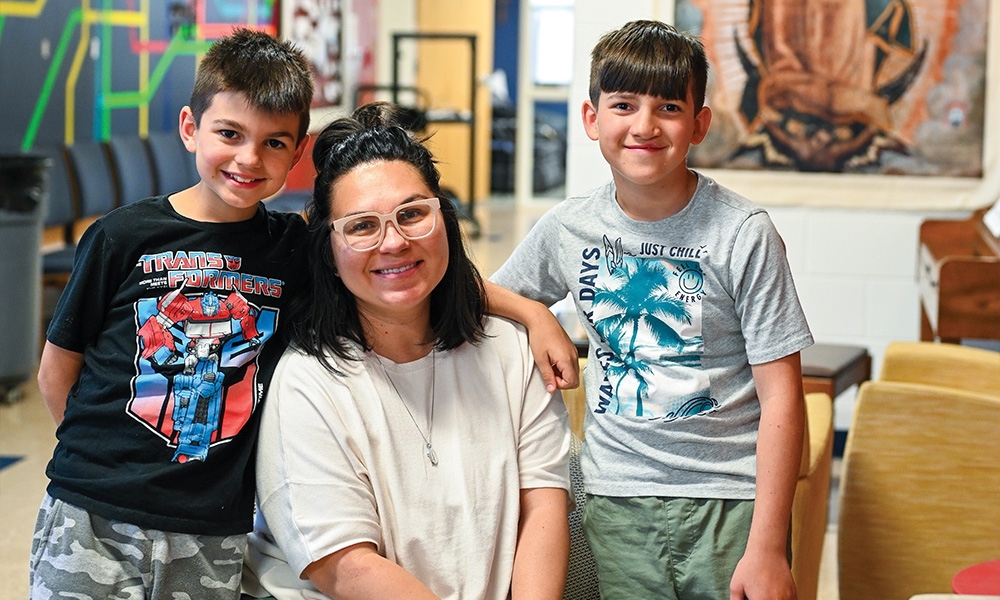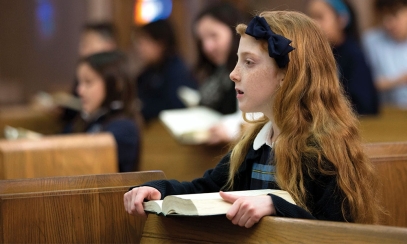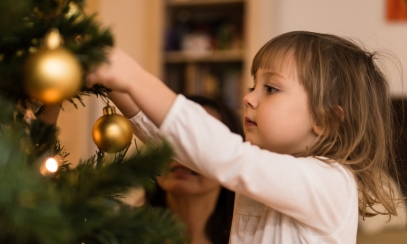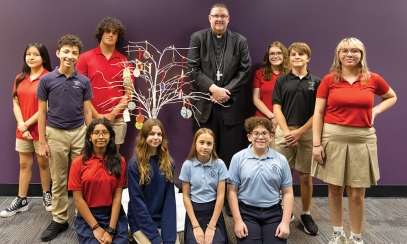
A Lifeline of Faith
When schools shut down for COVID, Kristina Markford decided to give homeschooling a shot.
When schools shut down for COVID, Kristina Markford decided to give homeschooling a shot.
She thought it would be temporary. But homeschooling gave her boys something they needed—time to see the true, the good, and the beautiful.
Markford, who still homeschools her kids, is a parishioner at St. Timothy Parish in Lutz, where she says Catholic homeschool families are finding something valuable:
“A lifeline.”
Places for Catholics Who Homeschool
In 2022, after St. Timothy’s saw “a growing presence of homeschooling members,” the staff hosted informal gatherings for them, said Joe Nieves, director of faith formation.
But last school year, the parish started doing something more structured: The St. Timothy Homeschool Fellowship, an opportunity for homeschool families to “be fed (spiritually) and be in community with each other,” said Cathy Stipanov, a longtime homeschool mom and the fellowship’s co-director. In its first year, 32 homeschool families—about 60 children—registered.
Other homeschoolers across the Diocese of Saint Petersburg have formed communities of their own. Regina Caeli Tampa is a homeschool hybrid that meets Mondays and Thursdays on campus and spends other days at home. JMJ Tampa Bay is a homeschool community that offers extracurricular activities.
At St. Rita Catholic Parish in Dade City, a homeschool ministry meets Wednesdays and provides extra classes to homeschooling families. No matter where homeschool families meet, they are proving that “homeschooling isn’t as out of the box as we used to think,” Stipanov said.
What Homeschool Is Actually Like
Homeschooling allows parents to tailor their kids’ education to meet specific needs and foster unique interests. For Catholic families, it also leaves time for daily Mass, character development, and extracurriculars like music, sports, or art.
Markford said homeschooling allows children to “deep dive,” or spend more time studying the topics that interest them the most.
And the flexibility in their schedules allows Catholic home-schooling parents do what Stipanov says they’re called to do:
“Take back that role we were given at the baptism of our children — to become the primary educators of the faith.”
Equipping Kids for a Faithful Life
Homeschooling helps families “to make the faith real and lived in the little parts of the day,” said Father Anthony Ustick, pastor of St. Timothy Parish, who was homeschooled himself.
During the school year, the fellowship meets on Wednesdays at 9 a.m. for Mass. Afterward, moms attend a Bible study called “Moms of St. Tim’s,” while their youngest children are in the nursery and school-aged kids have faith enrichment classes.
There is the Catechesis of the Good Shepherd for ages 3 to 9, theology for middle and high schoolers, physical education, and high school financial literacy.
“It’s always nice to have someone else pour into the kids the love of the faith,” Stipanov said.
Her youngest is a high school freshman in the fellowship at St. Timothy’s.
“My two older children are still in the faith, and a lot of it was due to the community of homeschoolers they met at St. Tim’s,” she said. “When you have the faith being taught at home and then you have it reinforced within your parish community, it really keeps your kids connected to the Lord.”
Creating Other Invaluable Connections
Homeschooling also keeps families connected to each other.
“There’s many more opportunities for homeschool families now than there was when I was growing up,” Father Ustick said. “As pastor, I am very thrilled and blessed that I can help create some of those opportunities for families here at St. Timothy’s.”
Those families are not taking it for granted.
“The kids look forward to seeing their friends, and we get to go to Mass as a family,” Markford said. “I get to be fed while my kids are being fed.”
Having that, she said, provides a lot for homeschoolers.
“It’s an anchor to our week,” she said. “We have found our community.”



